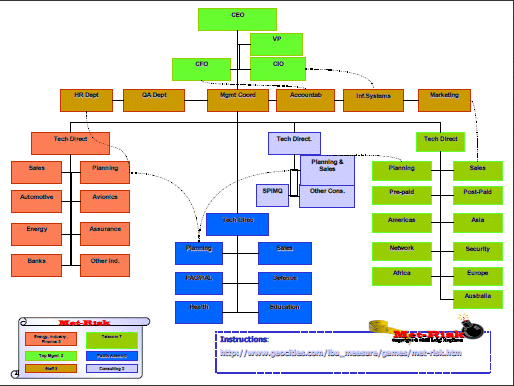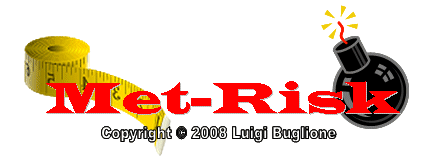
 |
||||||||||||||||
|
Background As in the overall "background & rationale" page, the original question was: why do not applying those thoughts to technical issues such as (Software) Project Management (and related knowledge areas)? That's why during the 1st Workshop on "Methods for Learning Metrics" (see slide#12) at the IEEE METRICS2005 conference, I proposed to introduce the use of SE/PM-tailored well-known games (for instance Risk) as a facilitator in the learning process. Adapting to the (Software) Measurement context As yet discussed with Project-o-poly, using the adagio "Start small", this is a first small deliverable for realizing this idea: introducing moments during the working life when it is possible to learn from games in a pleasant way. Obviously, this is not a perfect substitute for learning in the traditional way, but it has the goal to suggest that it's better to spend our working time in a pleasant way, learning new things and increasing your personal knowledge each day, no matter if you've learned a lot of things or just one, the most important thing is to know more, for yourself and, consequently, bringing this knowledge into your work. This is a little thumbnail of the game plan: 
(click to enlarge the photo) The goal of the original "Risk" game is to attempt to capture territories from other players for conquering the world through the elimination of the "enemies". Translating the game into a measurement context, the goal becomes to "conquer" the several organizational areas spreading measurement practices and be sure that all areas will apply metrics to monitoring & control their own activities. Instead of armies, the "weapons" are the KU (knowledge units) among players, and the "fight" is metaphorically represented by a confrontation of KUs providing its own view about how to apply and take advantage from measurement practices. As in the original game, a series of cards is available, representing the organizational areas with roles and related metrics: 
(click to enlarge the photo) Downloads Publications External References
|
|
